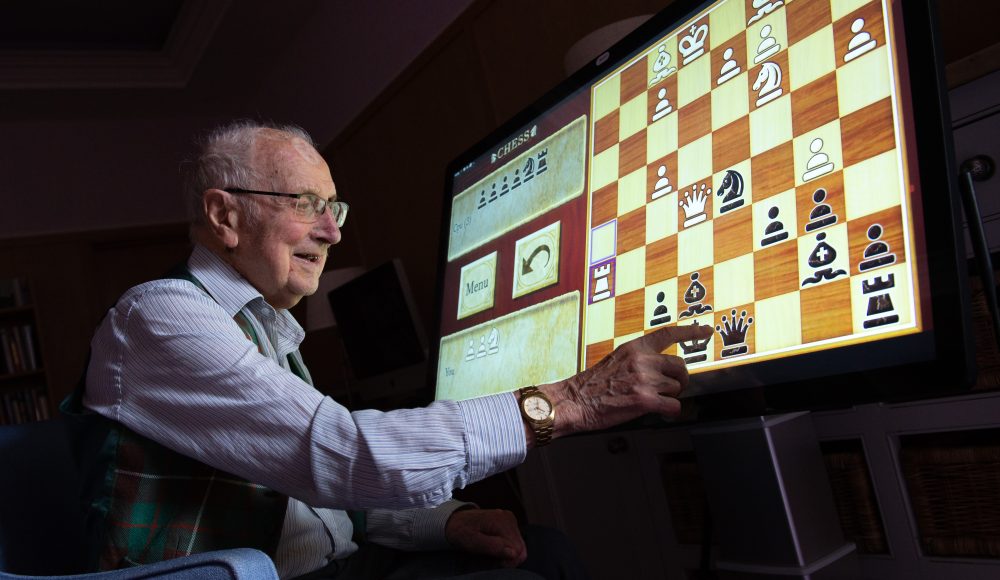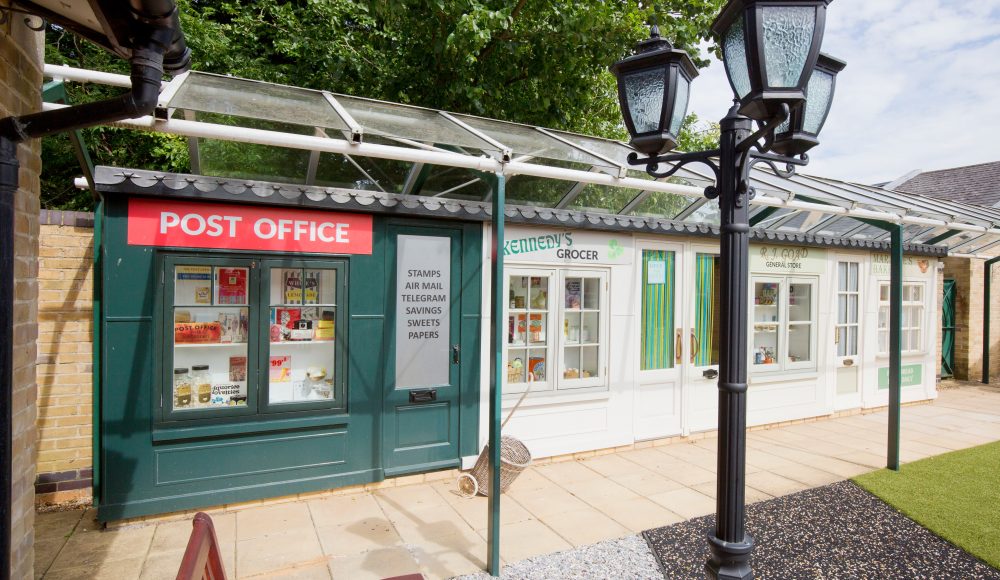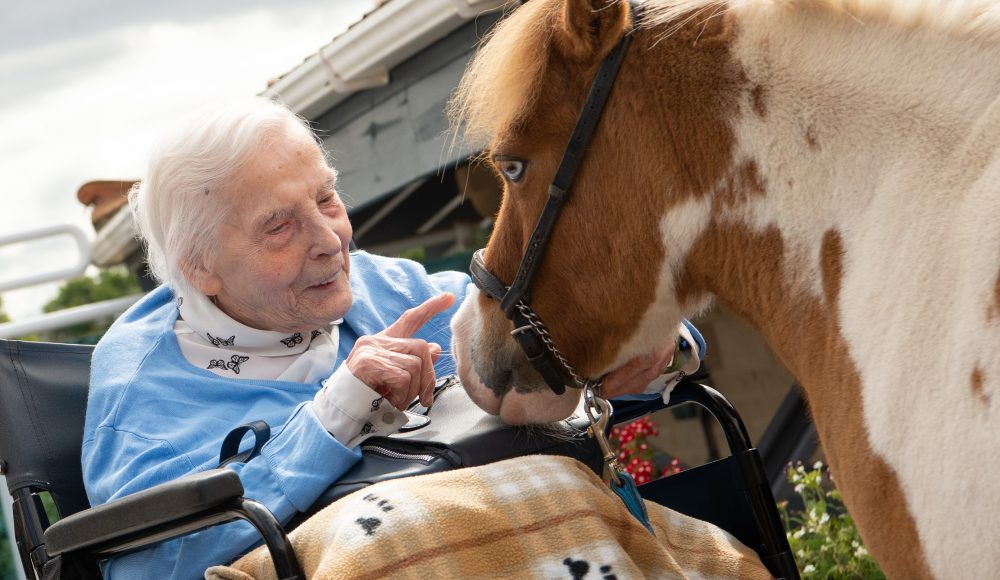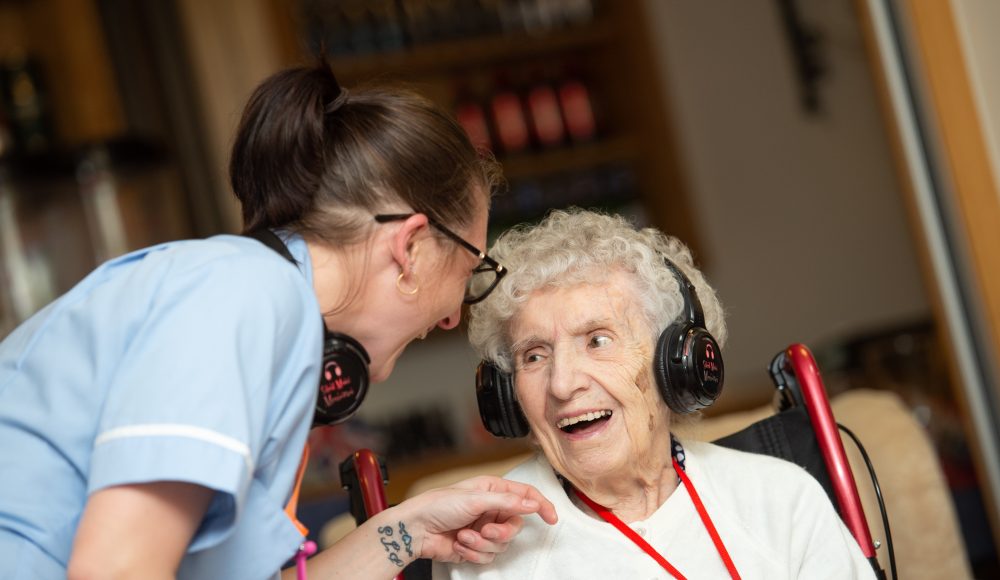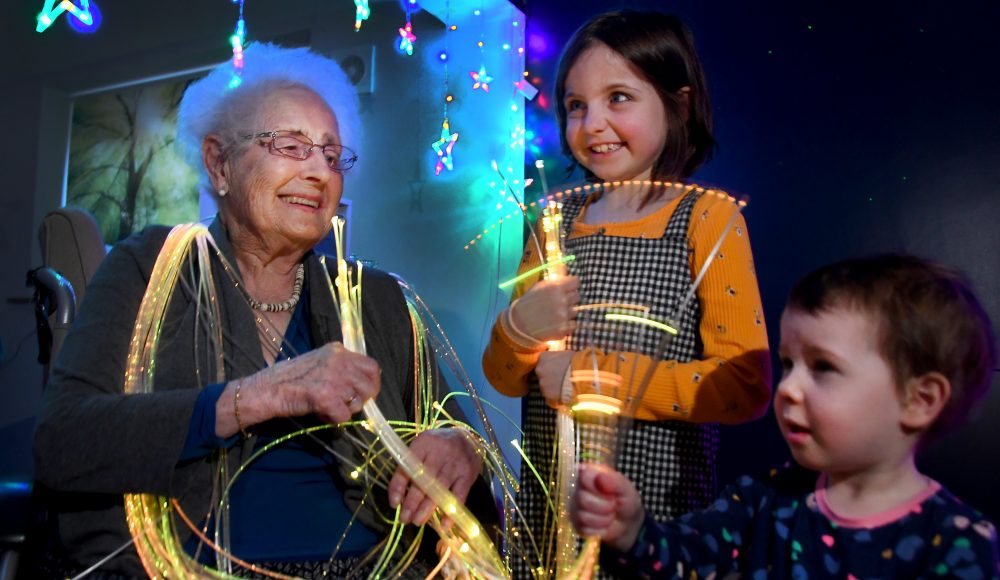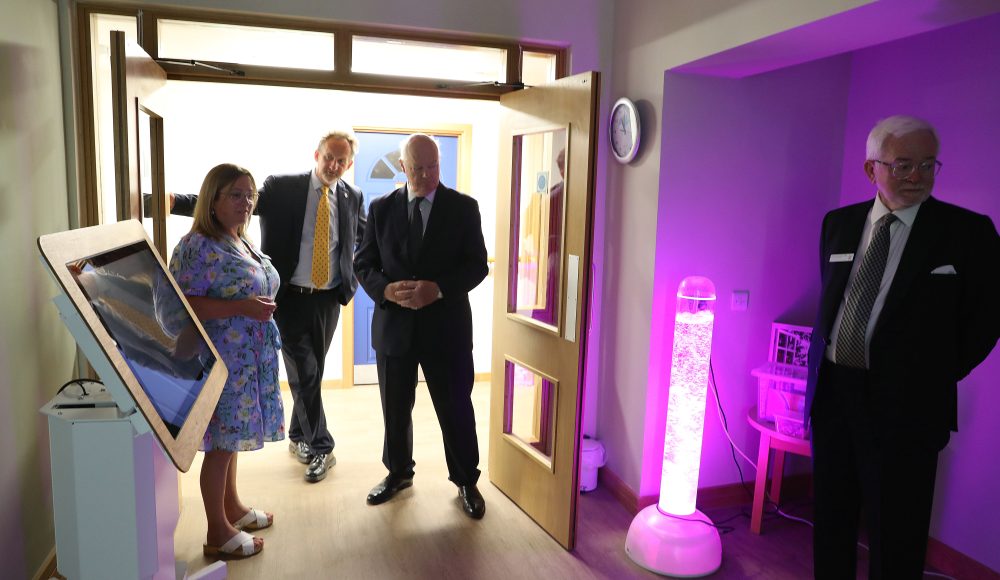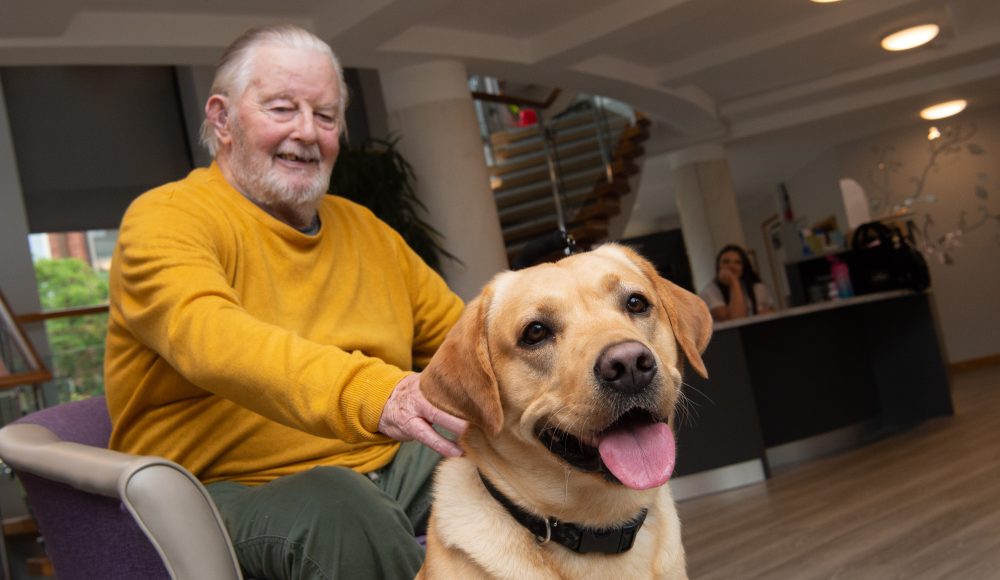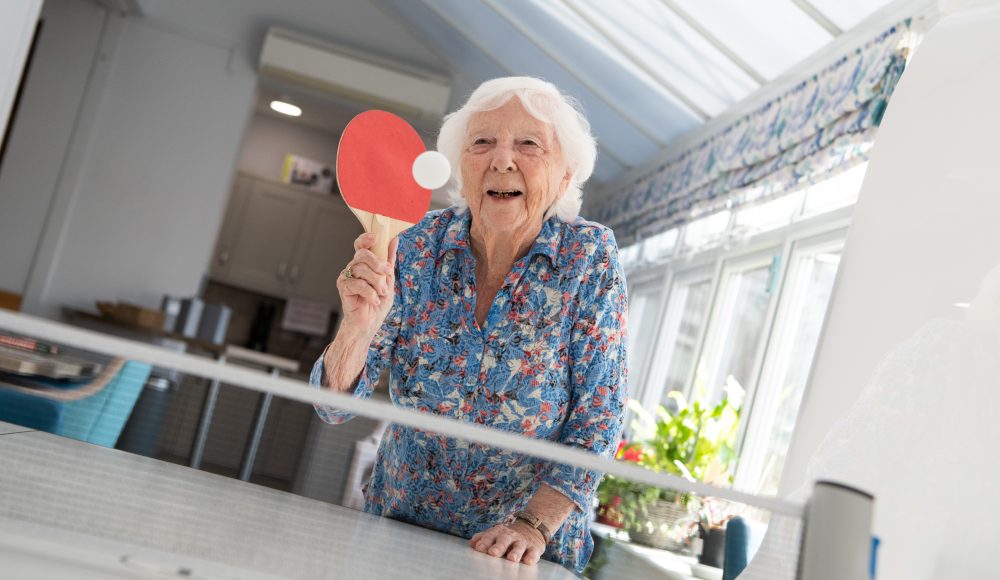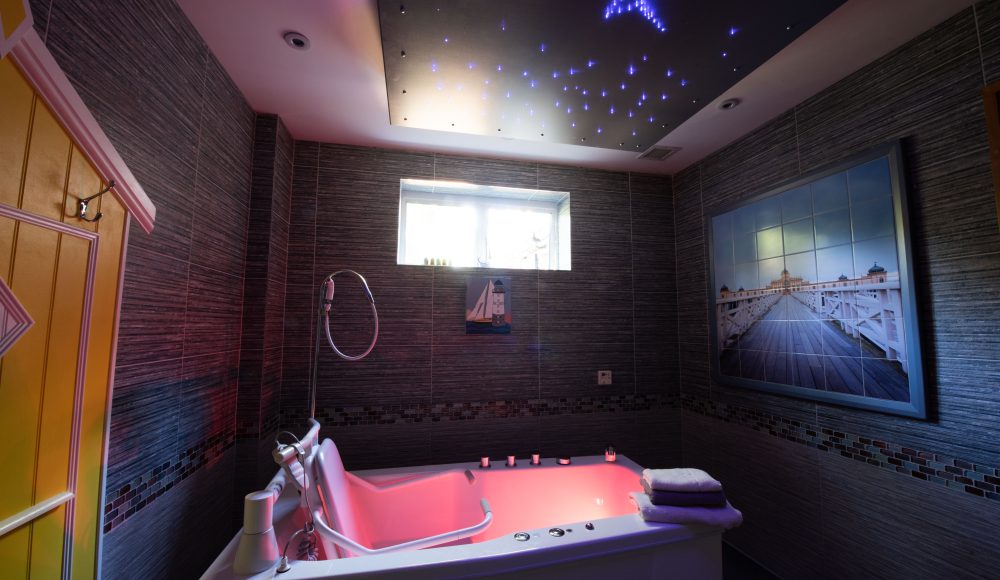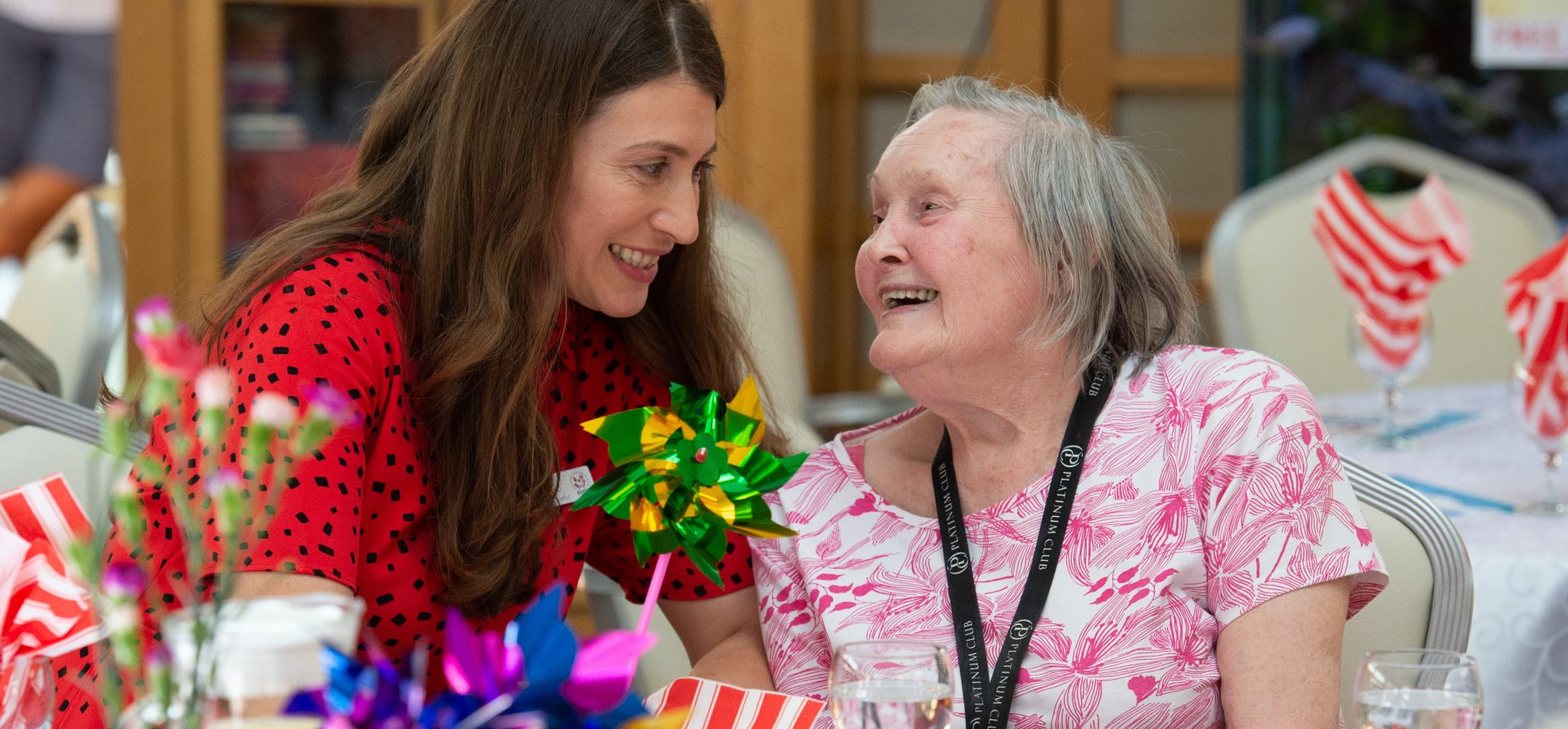
For an individual and their family members, being formally diagnosed with dementia is a life changing moment and understandably, it can often bring a lot of different emotions and fears. Whilst there is still no known cure for dementia, there are things we can do to support a positive approach for people living with this condition.

We provide care in a way that supports people on an individual basis, to enable them to have a better day-to-day quality of life. We celebrate the skills a person has retained, working with them to maintain their independence and engage their skill sets where possible.
We aim to start from a position of ‘what a person can do’ and how we can support them; working with the resident, their family and loved ones, to explore what is important to them and try where possible, to incorporate this into their lives.
All our care home staff receive basic dementia training; those working within one of our Dementia Houses will receive additional training to support the health and wellbeing of our residents with an advanced dementia.
If you are interested in the residential dementia care at any of our Homes, please contact the Home Management Team of your preferred Home and they will be able to provide more information about the Home’s individual services.

Anne joined RMBI Care Co. as Pharmacy and Dementia Specialist Lead in 2016, to support and advance dementia care in our Homes.
A qualified pharmacist for over 30 years, Anne is highly passionate about her profession. She has worked as a Community Pharmacist, a Lead Pharmacist for Mental Health within a PCT, a Lead Pharmacist in a Nurse Lead intermediate community setting for older people and more recently in direct dementia care in Health and Social Care. She is a special advisor to CQC and continues to work with academic colleagues on new initiatives whenever she can.
In 2014, Anne was appointed a Member of the British Empire for services to dementia and in 2015 she became the programme guardian for care home medication and dementia modules with the College of Pharmacy Practice. She is currently working on a number of dementia projects at RMBI Care Co. including how the charity can continue to best support residents, their families and staff now and in the years to come.

With over 20 years’ experience, Marinda is an accomplished professional in the care sector. She developed her clinical skillset in various roles, including as an Outpatient Supervisor in a hospital.
In 2014, she joined RMBI Care Co. as an Assistant Manager to cover a maternity leave and continued to stay when she was offered a permanent contract.
Marinda’s achievements secured her a promotion to Deputy Home Manager and then to Home Manager at Connaught Court, in York, where she supervises the Home’s Dementia Houses.
My passion for residential dementia support drives me to continuously look for ideas to enhance the lives of our residents.
To support the Home Manager in the running of Connaught Court, Marinda leads staff members to ensure they deliver outstanding residential dementia support. She believes in a person centred approach, where residents are continually supported throughout their journey.
While working at Connaught Court, Marinda has completed a Diploma in Dementia Care. She has also received extensive dementia training, which has allowed her to further develop her competences. She says:
Since I joined RMBI Care Co., I have received comprehensive regular inductions and specialist training to care for our residents with dementia. This organisation has always encouraged me to be innovative and use what I learn to support our residents.
Her enthusiastic commitment and creativity resulted in the opening of Ebor House, an Enhanced Dementia House that offers sensory stimulation and interaction to residents at the later stages of dementia. The idea for the new dementia space came up after Marinda and her team identified a need for a separate area where specific sensory care could be provided. The positive feedback from the House’s residents and their relatives confirms Marinda and her colleagues’ invaluable expertise.
We invest in our caring staff members and ensure they have the necessary skills to care for and support our residents living with dementia. Some of the training our staff undertake include:
● Dementia Awareness accredited by Alzheimer’s Society. All staff complete this training.
● Enhanced Dementia Modules.
Our Enhanced Dementia Modules cover a wide range of subjects, including:
We also provide any additional training that may be required on a case-by-case basis.
people are estimated to be living with dementia in the UK
is the total number of people in the UK with a dementia diagnosis
people in the UK will have dementia by 2025 and this is expected to increase to two million by 2050.
A person’s risk of developing dementia rises from one in 14 over the age of 65, to one in six over the age of 80.
Source: Alzheimer’s Society, 2014 – www.dementiastatistics.org/statistics-about-dementia/
The word ‘dementia’ is used to describe the symptoms of a number of different diseases or conditions that cause the progressive decline of the brain. These changes are often small to start with but for someone with a dementia they are severe enough to affect daily life.
There are many forms of dementia including:
Alzheimer’s disease is the most common form of dementia accounting for about two thirds of cases in people over the age of 65. It is also possible to have more than one type of dementia at the same time.
Alzheimer’s can sometimes be seen with vascular dementia or dementia with Lewy bodies which is known as ‘mixed dementia’. They have some things in common but there are also important differences in how they affect people and the ways they can be managed. There are rare diseases, which can also lead to dementia.
When somebody develops a dementia it is natural to ask why. It is not usually possible to say for certain, although a doctor may be able to say which factor(s) might have contributed to it. In most cases, a mixture of risk factors, potentially avoidable and not, will be responsible.
More information on understanding risk factors can be found on the Alzheimer’s Society website – alzheimers.org.uk
Dementia can cause a number of different symptoms. Some of the most common include:
(Source: Alzheimer’s Society)
Sometimes, dementia-like symptoms can have other causes, such as a chest or urinary infection, dehydration, side-effects of medication, depression, stress or vitamin deficiencies.
If you notice any signs or symptoms you should gently encourage the person to approach their GP or seek further support from an appropriate organisation. The assessment for possible dementia excludes treatable conditions; it is not a single step but a process that takes time. It consists of various stages and tests and ends with sharing of the diagnosis. For the person and those close to them this is often an uncertain, anxious and emotional journey.
All RMBI Care Co. Homes can support people with a dementia. If you are interested in a particular Home, please contact the Home direct for further information (link to list of all Homes.)
A care and research charity for people with dementia and their carers.
www.alzheimers.org.uk or call the National Dementia Helpline on 0300 222 11 22.
A group of people who have come together to create a dementia friendly community (DFC). www.dementiaaction.org.uk/local_alliances
Provides clear, free and impartial advice on a range of issues such as care and support, money and benefits, health and mobility.
www.independentage.org.uk or call 0800 319 6789.
Local social services can help with personal care and day-to-day activities after carrying out a needs assessment.
Your Provincial Grand Almoner may be able to signpost you to local support and assistance
We are continuously working to improve our Homes to support our residents’ changing needs. Many of our Homes have transformed different areas, purchased digital equipment and provide regular activities to support our residents with dementia, supported by the community of Freemasons and our Homes’ Association of Friends. Here are just a few of the unique areas that feature within some of our Homes as well as dementia friendly activities that have been provided by our Activities Teams.
